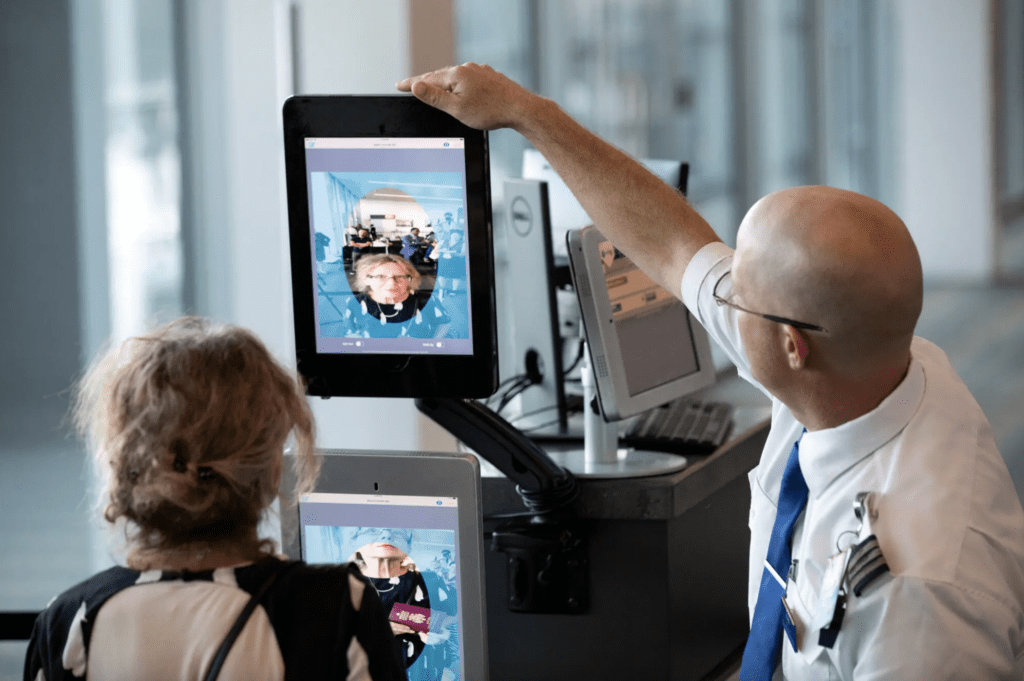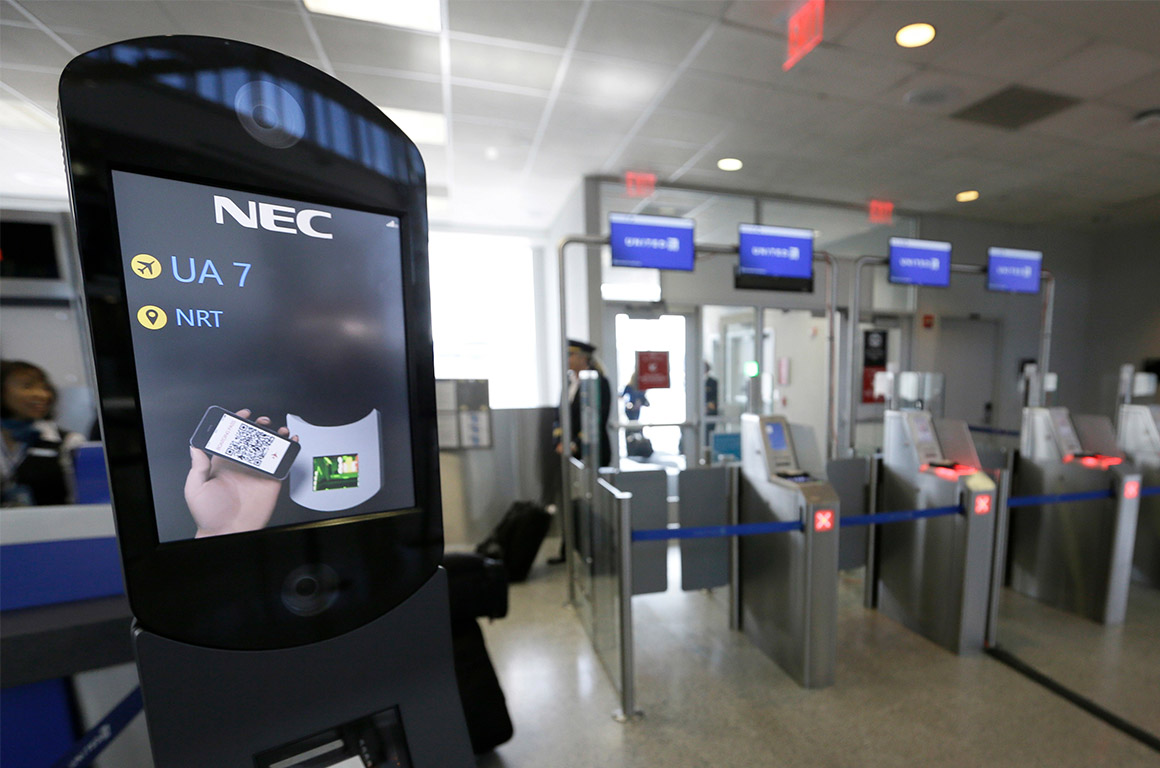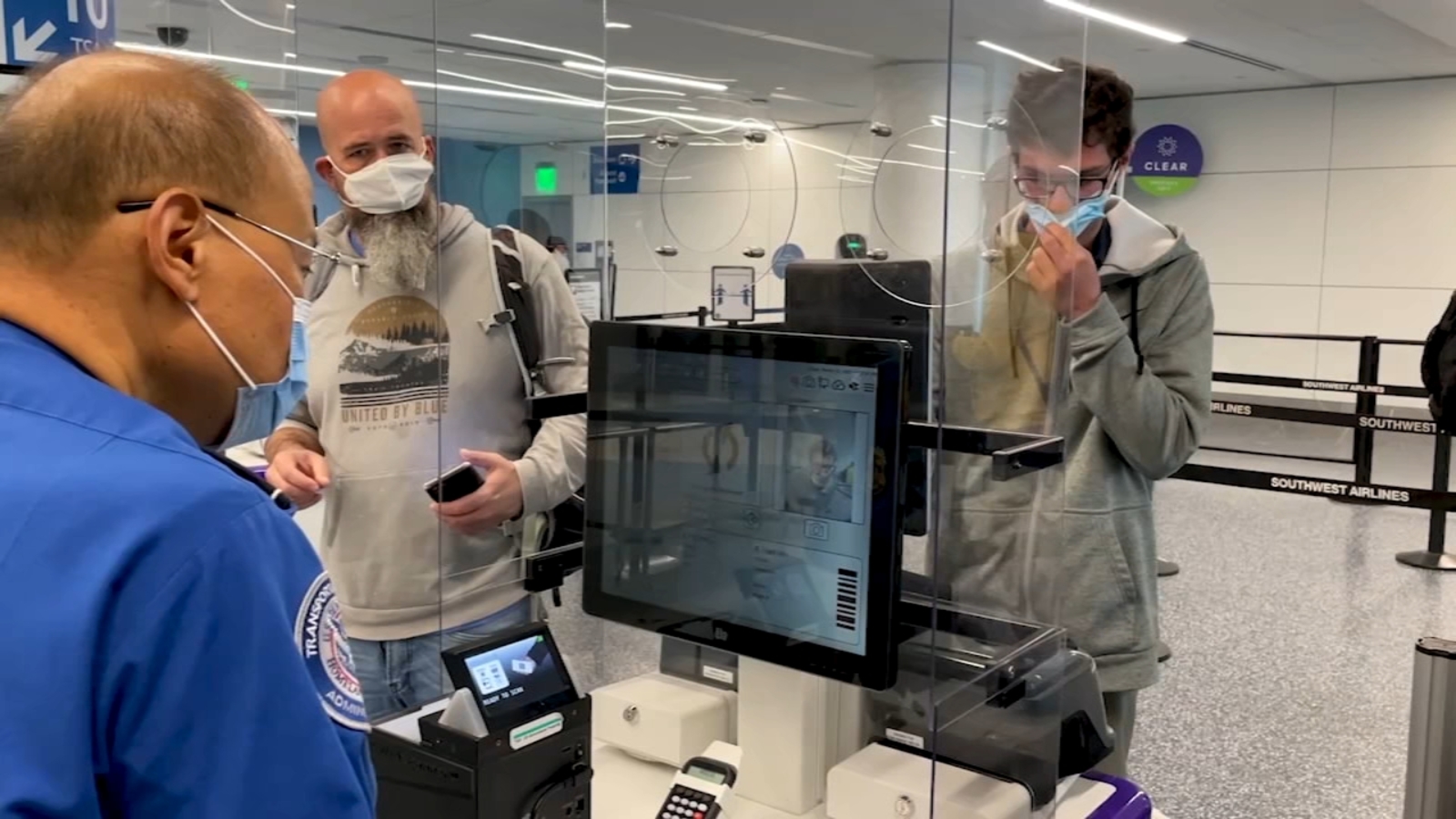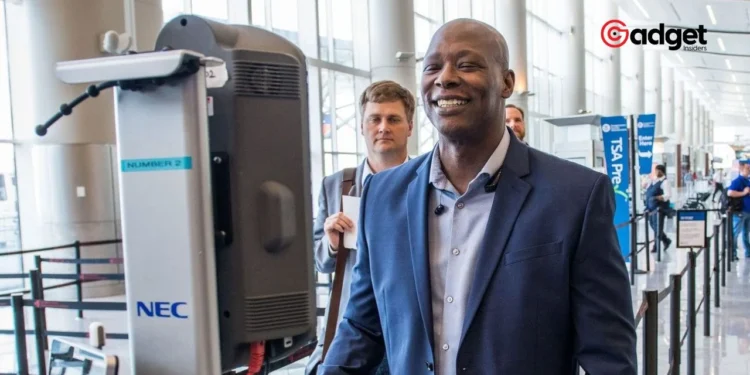In a significant pushback against the Transportation and Security Administration’s (TSA) plans to expand facial recognition technology across U.S. airports, a bipartisan group of 14 senators has expressed serious concerns regarding the efficacy and implications of such measures.
These senators, led by Senator Jeff Merkley of Oregon, are urging a reconsideration of this technology’s deployment, particularly questioning its impact on air travel safety and civil liberties.

TSA: A Swift Expansion and Bipartisan Backlash
Currently, the TSA operates facial recognition technology in 25 airports but intends to increase this number to over 430 by July 2023. This rapid expansion has not gone without notice or concern.
The senators argue that “this powerful surveillance technology as deployed by TSA does not make air travel safer,” pointing out the lack of substantial evidence that the technology effectively prevents false identification or enhances airport security.
A bipartisan group of senators is pushing for restrictions on the use of facial recognition technology by the Transportation Security Administration, saying they are concerned about travelers’ privacy and civil liberties. https://t.co/t57fiE2Wh4
— PBS NewsHour (@NewsHour) May 2, 2024
During a demonstration at Baltimore-Washington International Thurgood Marshall Airport, TSA’s Identity Management Capabilities Manager, Jason Lim, showcased how travelers verify their identity by matching their live photo with the one on their driver’s license or passport.
However, the senators’ letter to Senate leaders Chuck Schumer and Mitch McConnell highlights a deeper worry: “The potential for misuse of this technology extends far beyond airport security checkpoints.”
The Debate Over Privacy and Surveillance
The letter from the senators touches on a chilling potential future where facial recognition could become a common expectation in many public and government spaces, thereby normalizing a level of surveillance that many Americans might find invasive.
It cites concerns about the technology’s error rates, which TSA reports is around 3%. In practical terms, this rate could lead to more than 68,000 mismatches daily, affecting the 2.3 million travelers moving through airports daily.

Moreover, recent incidents where hundreds of passengers managed to bypass TSA security entirely suggest that the agency might benefit from focusing on traditional security measures rather than expanding into biometric tracking.
The senators’ letter emphatically states, “Once Americans become accustomed to government facial recognition scans, it will be that much easier for the government to scan citizens’ faces everywhere.”
Legislative and Public Response
The debate over TSA’s use of facial recognition technology is occurring alongside the congressional reauthorization of the Federal Aviation Administration (FAA), an event that happens every five years.
The current authorization is set to expire on May 10, making this an opportune moment for lawmakers to address these pressing privacy concerns.
The FAA reauthorization bill proposes significant funding, with $105 billion allocated to the FAA and an additional $738 million to the National Transportation Safety Board (NTSB), according to CNN.
The inclusion of facial recognition technology in this budget is under scrutiny, especially given the bipartisan concern over its rapid deployment and potential implications for privacy rights.

Future of Facial Recognition in Air Travel
As the TSA aims to make facial recognition a standard part of the airport experience, stating that the program is optional but with plans for broader implementation, the resistance from lawmakers highlights a critical debate about security versus privacy.
Whether this pushback will result in any legislative changes or a slowdown in the deployment of facial recognition technology remains to be seen.
As the TSA plans to expand facial recognition across hundreds of U.S. airports, the ensuing debate underscores a pivotal moment for privacy advocacy and the balance between technological advancement and civil liberties.
How this issue evolves could set precedents for the use of surveillance technologies in other public domains, making the outcomes of this legislative session particularly significant for future policies.










